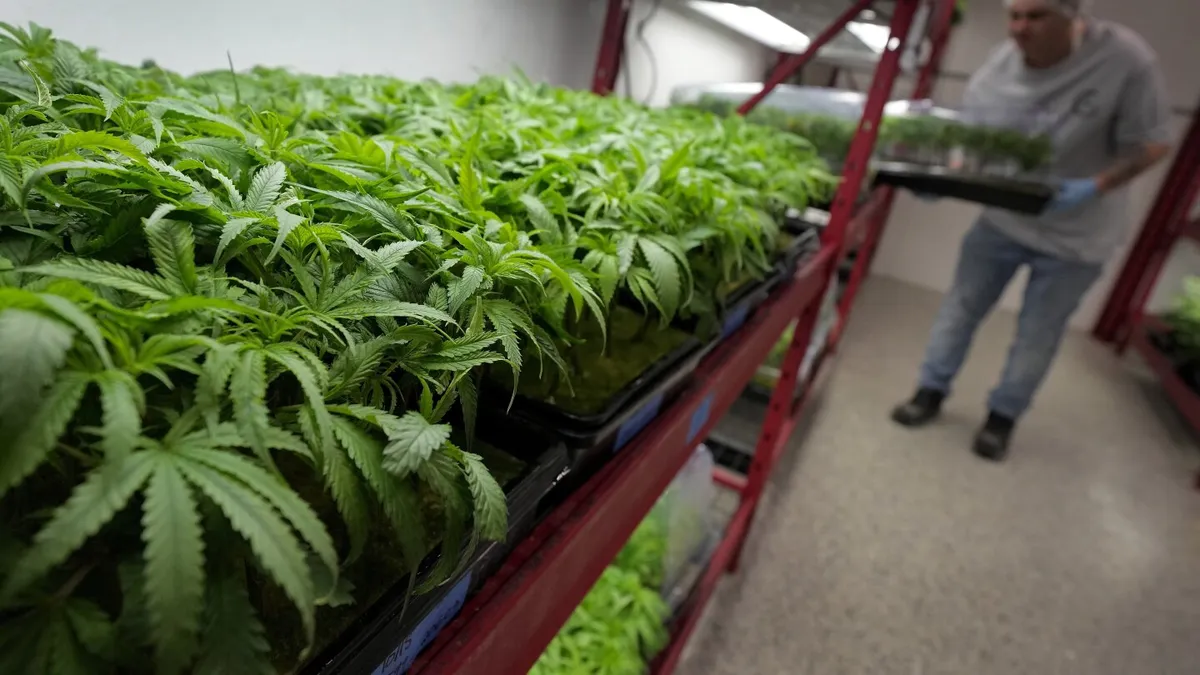
President Donald Trump is reconsidering the classification of marijuana, potentially moving it to a less dangerous category. This initiative could bring the federal government's marijuana policy more in line with the regulations already adopted by numerous states across the country. On Monday, Trump expressed his intention to decide within the coming weeks whether to support changes to how marijuana is regulated at the federal level.
This renewed focus on marijuana regulation follows a proposal from former President Joe Biden’s administration, which sought to reclassify marijuana. However, no concrete decision was made before Biden left office. In contrast, many states have taken significant steps by legalizing the recreational use of marijuana for adults or permitting its use for medical purposes.
Under the current federal policy on marijuana, possessing marijuana is classified as a crime that can lead to fines and imprisonment. More severe penalties apply to selling or cultivating marijuana, with prison sentences ranging from five years to life, depending on the amount involved. The Justice Department previously proposed reclassifying marijuana from a Schedule I drug—alongside substances like heroin and LSD—to a less dangerous Schedule III category, which includes drugs like ketamine and certain anabolic steroids. However, this change requires a lengthy bureaucratic process.
Last year, nearly 43,000 public comments were submitted regarding the proposed reclassification. The Drug Enforcement Administration was still reviewing these comments when Trump took office in January, prompting a re-examination of marijuana policies across the federal government.
It's important to note that reclassifying marijuana would not legalize its recreational use nationwide. Instead, it would alter the regulatory landscape and tax implications surrounding marijuana. Currently, businesses involved in trafficking any Schedule I or II drugs cannot take federal income tax deductions for their business expenses. If marijuana were to be classified as a Schedule III drug, it could lead to significant tax savings for businesses legally selling marijuana in states where it is permitted.
Additionally, reclassification could facilitate research on marijuana. Conducting authorized clinical studies on Schedule I substances is challenging due to the stringent regulations. Currently, many banks and financial institutions shy away from providing financial services, loans, or credit products to marijuana businesses due to the potential for federal penalties. However, a report from the Congressional Research Service suggests that simply rescheduling marijuana may not change this situation.
Trump is currently evaluating the pros and cons of modifying marijuana policy, describing it as a “very complicated subject.” He mentioned hearing positive feedback regarding the medical uses of marijuana, while also acknowledging concerns about its misuse. As a candidate, Trump indicated openness to relaxed regulations, stating on his social media platform last year that he would “focus on research to unlock the medical uses of marijuana to a Schedule 3 drug.”
Nevertheless, reclassification faces opposition from some conservative factions and law enforcement groups. The National Sheriffs’ Association has expressed its disapproval, citing previous determinations of marijuana's high abuse potential and linking it to instances of extreme intoxication and fatal accidents.
Currently, medical marijuana is legal in 40 states and the District of Columbia. Over the last decade, the number of states permitting recreational marijuana use has increased to 24. However, recent attempts to legalize recreational marijuana have faced challenges, as seen in Florida, North Dakota, and South Dakota, where ballot measures failed to pass. In Florida, although the measure garnered a majority vote, it did not meet the 60% threshold required for constitutional amendments.
In Idaho, lawmakers have proposed a constitutional amendment to prevent citizen initiatives aimed at legalizing marijuana, reserving such decisions for the Legislature. Meanwhile, efforts continue in other states, such as Oklahoma, where a measure for recreational marijuana was defeated in 2023.
Public opinion appears to be shifting in favor of marijuana legalization. According to a recent AP VoteCast survey involving over 120,000 voters during last year’s election, approximately 60% of respondents support the legalization of recreational marijuana nationwide. Gallup polling data indicates that support for marijuana legalization has surged from 36% in 2005 to 68% last year. Furthermore, marijuana use has risen significantly, with over 64 million Americans aged 12 and older—22.3% of the population—having used marijuana in the past year, according to a recent survey by the Substance Abuse and Mental Health Services Administration.
This increase is primarily driven by adults aged 26 and older, although individuals aged 18-25 continue to be the demographic most likely to use marijuana, with 35% reporting usage in the past year. As discussions around marijuana classification continue, the landscape of marijuana policy in the United States remains dynamic and evolving.